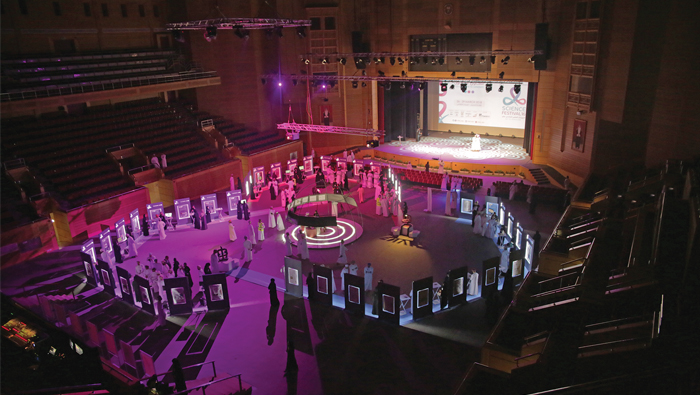
Muscat: Some 36 student projects and six scientific studies were generated by Sultan Qaboos University’s 16th Science Festival, launched under the theme “Collaborate to Generate”.
“The festival this year aimed to display projects that came from the collaboration between different science departments in the college of science, and at the same time, we support the idea of applications or projects that can enter the market and be useful to society,” said Shahad Al Hanai, head of the festival’s media committee.
The science exhibition was divided into three sections—techno, enviro, and multi. The enviro section contained 12 projects and two studies of the environment industry, recycling and geological treasures. Bloody fertiliser is one of the projects in the section, with the objective of utilising animal blood waste to produce fertilisers.
“Bloody fertiliser is a natural product produced from animal blood waste. It is free of chemicals and produced by drying and grinding blood. The raw materials are available, which reduce production cost and make it affordable. This fertiliser contains a high amount of nitrogen and potassium that enhance growth and make it more greenish,” Sultan Al Qasssabi said.
The techno section also has 12 creative projects and two studies on the internet, clouds and mobile apps. The Linto application is a mobile app created to help people with visual and hearing impairments.
Huda Al Quraini said: “Our application aims to transfer the voice to written text that can facilitate communication between individuals in the community and help students, and deaf and blind people. It is possible to take notes more easily and quickly. It can be downloaded for free from the app store.”
Place-Based Scheduler is another project created by Zakaria Bin Said’s team. He said: “Our app is based on identifying the user’s location. It can apply some functions when reaching a certain place specified before.”
For example, it can set the phone to silent when entering a mosque, a classroom or a place that requires silence.
It also allows users to write notes such as a shopping list and to get a notification when they reach a shopping centre.”
Gelovera, meanwhile, falls under the multi-section with another 12 projects and scientific studies.
“The idea is to take advantage of the characteristics of wax in aloe vera plants that are available in the Sultanate and inject it into different species which cannot grow in the desert environment. So, species will be able to adapt to high temperatures and be able to grow and cultivate,” Mariyam Al Wahibi said.
“We have made great efforts in preparing for the festival in four months and balancing the pressures of work and study. All the details were planned by the students. The sense of achievement after the start of the festival was wonderful, and all the projects presented are for the festival and do not relate to coursework. We wish business entrepreneurs support the projects so all the efforts and ideas are not wasted,” Al Hanai stressed.
Besides the science exhibition, the festival contained many other events: entertainment shows, scientific experiments and an exhibition for school student inventions.